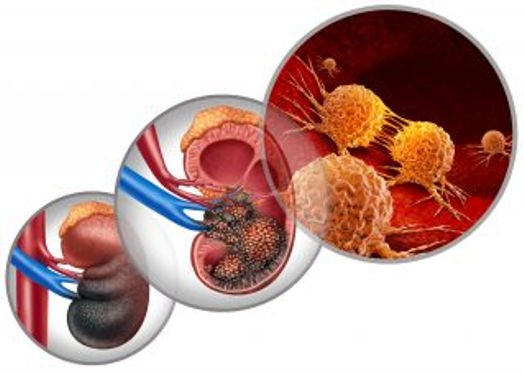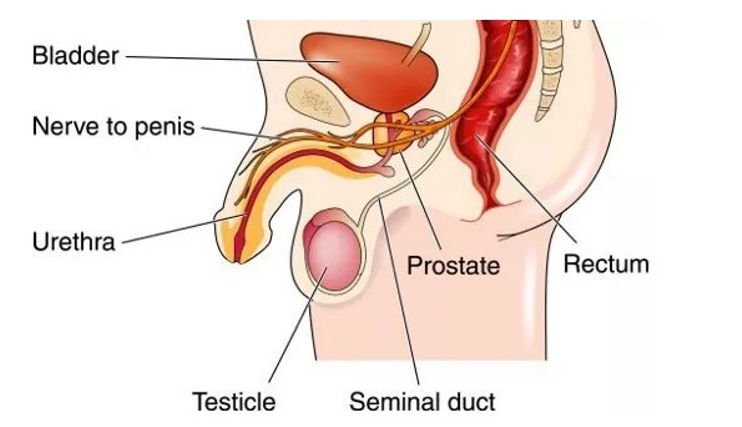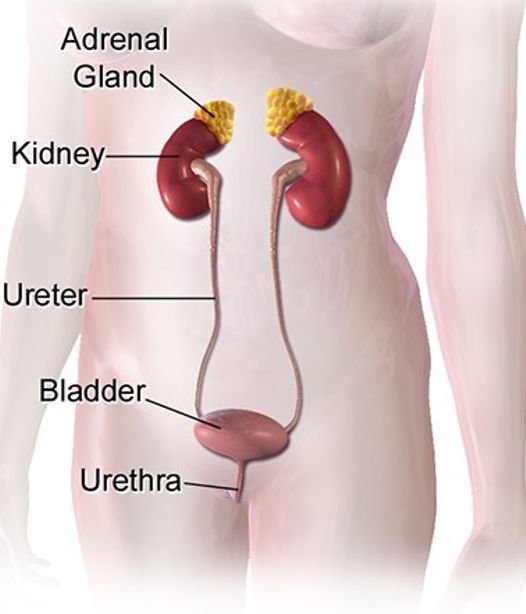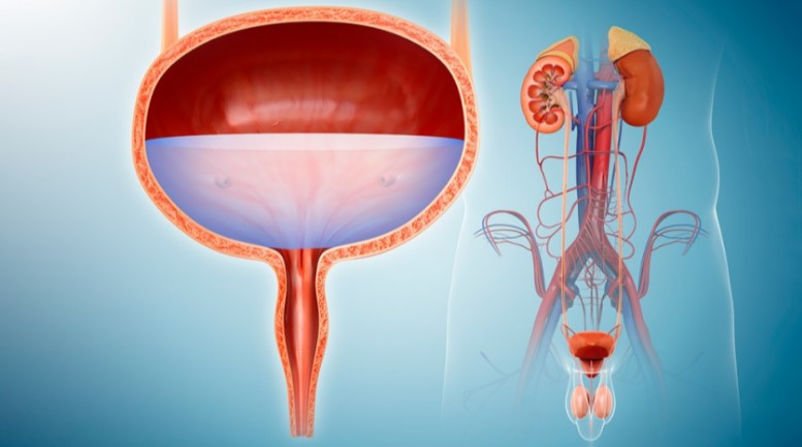What is urology?
Urology is a medical specialty dedicated to diagnosing and treating disorders of the urinary system and male reproductive organs. While some urologists address a wide variety of urinary tract conditions, others focus on specific subspecialties within urology, offering specialized care. These specialties include:
-
Male infertility: Deals with conditions that prevent a man from fathering a child.
- Neurourology: Concentrates on urinary issues caused by disorders of the nervous system.
- Pediatric urology: Addresses urinary problems in children.
- Urologic oncology: Specializes in cancers of the urinary system, such as bladder, kidney, prostate, and testicular cancers.
What is a urologist?
The urinary system, which urologists focus on, is responsible for creating, storing, and expelling urine from the body. Urologists can treat conditions affecting any part of this system, including:
- Kidneys: The organs that filter waste from the blood to produce urine.
- The ureters are slender, muscular tubes that serve as the passageways for urine to flow from the kidneys to the bladder.
- Bladder: The hollow organ that stores urine.
- Urethra: The tube that carries urine from the bladder out of the body.
- Adrenal glands: Glands located on top of each kidney that release essential hormones.
For men, urologists also treat conditions affecting the reproductive system, which include:
- Penis: The organ responsible for expelling urine and transporting sperm out of the body.
- Prostate: A gland located beneath the bladder that adds fluid to sperm to form semen.
- Testicles: The two oval-shaped glands located within the scrotum are responsible for producing testosterone and sperm.
What are the symptoms of Urology?
Urologists are not a condition but a type of medical specialist, so there aren’t “symptoms of a urologist.” However, some symptoms might indicate you need to see a urologist. These symptoms are typically related to the urinary tract or male reproductive system and may include:
- Blood in the urine (hematuria)
- Painful urination (dysuria)
-
- Trouble urinating or the inability to fully empty the bladder.
- Urinary incontinence (leaking urine)
- Lower abdominal, pelvic, or back pain
- Pain in the groin area, testicles, or penis (in men)
- Erectile dysfunction
- Unusual discharge from the genitals
- Testicular lumps or swelling
These symptoms may be signs of a urinary tract infection (UTI), kidney stones, prostate issues, or other urologic conditions that warrant a visit to a urologist.
Urology and Cancer

Cancer within the urological system represents a significant portion of urology practice, affecting organs like the prostate, bladder, and kidneys. Early detection, diagnosis, and treatment are critical for improving outcomes and quality of life for patients with these cancers. Urologists work with oncologists and other healthcare professionals to diagnose and treat urologic cancers using a combination of surgery, radiation, chemotherapy, and targeted therapies. The most common types of urological cancers include prostate cancer, bladder cancer, and kidney cancer.
Prostate Cancer
Symptoms of Prostate Cancer:
- Difficulty urinating or weak urine flow
- Blood in the urine or semen
-
Discomfort in the pelvic region or lower back.
- Erectile dysfunction
- Frequent urination, particularly at night
Diagnosis and Treatment:
Prostate cancer is typically identified using a prostate-specific antigen (PSA) blood test and a digital rectal exam (DRE). If these tests raise suspicion, a biopsy is performed to confirm the presence of cancerous cells. The available treatment options depend on the cancer stage and the patient’s overall health. They may include:
- Active surveillance for slow-growing cancers
- Surgery, such as radical prostatectomy, to remove the prostate
- Radiation therapy is used to precisely target and eliminate cancer cells.
- Hormone therapy to reduce the production of testosterone, which fuels prostate cancer growth
- Chemotherapy or immunotherapy in advanced cases
Early-stage prostate cancer has a high survival rate when detected and treated promptly.
Bladder Cancer
Bladder cancer originates in the tissues of the bladder, the organ responsible for storing urine. It is the fourth most common cancer in men but can also affect women. Smoking is one of the biggest risk factors for developing bladder cancer, along with exposure to certain chemicals and chronic bladder infections.
Symptoms of Bladder Cancer:
- Blood in the urine (hematuria), which may appear pink, red, or dark brown
- Frequent or painful urination
- Pelvic or lower back pain
- Urgency to urinate without passing much urine
Diagnosis and Treatment:
Bladder cancer is often detected through urine tests, imaging tests (such as CT scans or ultrasounds), and a cystoscopy, which allows the doctor to examine the inside of the bladder using a camera.The treatment varies based on the type and stage of the cancer and may involve:
- Transurethral resection of bladder tumor (TURBT) to remove cancerous tissue in the early stages
- Radical cystectomy, the surgical removal of the bladder, for more advanced cases
- Chemotherapy or immunotherapy to kill cancer cells or boost the immune system
- Radiation therapy to target cancer cells, often used in conjunction with surgery or chemotherapy
Bladder cancer is often recurrent, so patients require long-term follow-up care to monitor for new tumors.
Kidney Cancer
Kidney cancer, also known as renal cancer, primarily affects the kidneys, which are responsible for filtering blood and producing urine. The most common type of kidney cancer is renal cell carcinoma (RCC), which begins in the lining of the kidney’s small tubes. Kidney cancer is often detected incidentally during imaging tests for other conditions, as early-stage kidney cancer rarely causes symptoms.
Symptoms of Kidney Cancer:
- Blood in the urine
- A persistent lump or pain in the side or lower back
- Unexplained weight loss
- Fatigue
- Fever that isn’t caused by an infection
Urological Health for Men

Men’s urological health plays a critical role in overall well-being, especially as they age. Common urological conditions affecting men include:
- Prostate Issues: Conditions like benign prostatic hyperplasia (BPH), an enlarged prostate, are common in older men and can cause urinary problems. Prostate cancer is another concern, which can be detected early through regular screenings like PSA tests.
- Erectile Dysfunction (ED): ED is the inability to achieve or maintain an erection and can be caused by underlying conditions such as diabetes, heart disease, or hormonal imbalances. Urologists can offer treatments ranging from medications to surgery.
- Male Infertility: Infertility in men can result from various factors, including low sperm count, blockages, or hormonal issues. Urologists diagnose and treat these problems, often offering lifestyle advice, medications, or surgery to improve fertility.
Maintaining good urological health involves regular check-ups, staying hydrated, practicing healthy lifestyle habits, and seeking early intervention if symptoms arise. Early detection and treatment of urological conditions can improve quality of life significantly.
Urologic Health for Women

Urology isn’t just for men; it plays an important role in women’s health as well. Women face several urologic conditions, with the most common being urinary tract infections (UTIs), urinary incontinence, and pelvic floor disorders.
- Urinary Tract Infections (UTIs): Women are more prone to UTIs due to the shorter length of their urethra, allowing bacteria to reach the bladder more easily. Symptoms may include the need to urinate frequently, pain or a burning sensation while urinating, and urine that appears cloudy or has a strong odor. UTIs are treatable with antibiotics, but chronic cases may require further investigation.
- Urinary Incontinence: Many women experience involuntary leakage of urine, particularly after childbirth or during menopause. This can be due to weakened pelvic muscles or bladder issues. Treatments range from lifestyle changes and pelvic floor exercises to medications or surgery, depending on severity.
- Pelvic Floor Disorders: These occur when the muscles and tissues supporting the bladder, uterus, and rectum become weakened or damaged. Pelvic organ prolapse, where organs slip out of place, can cause discomfort and urinary issues. Treatments include physical therapy, medications, or surgical interventions.
Maintaining good hydration, practicing proper hygiene, and strengthening the pelvic floor muscles through exercises can help prevent and manage these conditions.
Treatment Options in Urology
Medications
Many urological conditions, such as urinary tract infections (UTIs), benign prostatic hyperplasia (BPH), and overactive bladder, can be treated with medications. Antibiotics are commonly prescribed for infections, while alpha-blockers or 5-alpha reductase inhibitors help manage BPH.
Minimally Invasive Procedures
Minimally invasive techniques like lithotripsy (shock wave therapy) are used to break up kidney stones without surgery. Ureteroscopy and cystoscopy are also employed to diagnose and treat conditions inside the urinary tract using small instruments, requiring minimal recovery time.
Surgical Interventions
In cases where medication or minimally invasive procedures are ineffective, surgery may be required. This can include prostate surgery (TURP), kidney stone removal (nephrolithotomy), or bladder surgeries for more severe conditions like cancer.
Living with Urological Conditions
Managing Chronic Conditions
Chronic urological conditions like overactive bladder, interstitial cystitis, or chronic kidney disease require long-term management. This can include lifestyle modifications, medications, regular check-ups, and sometimes specialized treatments such as bladder training or pelvic floor therapy.
Coping Strategies
Coping with urological conditions involves both physical and emotional adaptation. Maintaining a healthy lifestyle, staying hydrated, and following medical advice are crucial. Mental health support, stress management techniques, and open communication with healthcare providers can also help in dealing with the emotional toll of these conditions.
Support and Resources
Patients with chronic urological issues can benefit from support groups, both in-person and online, where they can share experiences and gain insights. Organizations like the American Urological Association (AUA) offer resources, and your healthcare provider can recommend further educational materials, rehabilitation programs, and specialized care services.
FAQs
Q1. What is a common urology problem?
A: A common urology problem is a urinary tract infection (UTI), which can affect the bladder, kidneys, or urethra, causing pain, frequent urination, and discomfort. Other prevalent issues include kidney stones, benign prostatic hyperplasia (BPH), which causes prostate enlargement in men, and urinary incontinence, affecting both men and women.
Q2. What parts of the body are urology?
A: Urology focuses on the urinary system, which includes the kidneys, ureters, bladder, and urethra. In men, it also involves the reproductive organs such as the testes, prostate, and penis. Urologists treat conditions affecting these organs in both men and women, although some issues are gender-specific.
Q3. What is urology surgery for?
A: Urology surgery addresses various conditions, including the removal of kidney stones, prostate enlargement (BPH), bladder cancer, and other urinary or reproductive organ diseases. Surgeries can range from minimally invasive procedures to more complex surgeries, depending on the severity of the condition.
Q4. What is the role of a urologist?
A: A urologist is a medical specialist focused on diagnosing and treating disorders of the urinary system and the male reproductive organs. They handle conditions like kidney stones, urinary infections, prostate disorders, and erectile dysfunction. Urologists also perform surgeries, prescribe medications, and recommend lifestyle changes to manage and treat these issues.
Q5. What is done in urology?
A: In urology, specialists diagnose, treat, and manage diseases of the urinary and male reproductive systems. They perform tests like urinalysis, imaging, or cystoscopy to assess conditions. Treatments may include medication, minimally invasive procedures like lithotripsy for kidney stones, and surgeries for more severe issues such as cancers or bladder problems.
